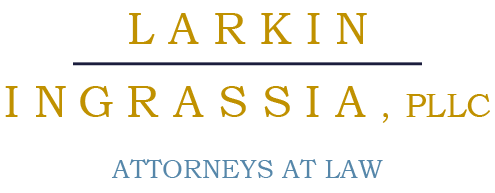Prior results do not guarantee a similar outcome.
When most people hear the term “estate planning,” they think of a last will and testament, or possibly a trust. Wills and trusts are, of course, vital parts of the estate planning process, but there are also additional documents that are useful in drafting a comprehensive and effective estate plan. By way of example, health care proxies and living wills complement a well-rounded approach to estate planning. A living will and health care proxy work together to allow you to explicitly state your preferences and desires for medical treatment, end-of-life care and even long-term care. You may also state whether you want artificial life-sustaining nutrition or ventilation and establish limits on resuscitation efforts, which may clarify your intentions, making the decision making process for your agent much less stressful. Your agent will likely feel as though he or she is following your directions and not making a decision on your behalf in situations where they may be unsure of your preferences.
Beneficiary Designations are Useful in an Effective Estate Plan
A key step in the estate planning process — and one that too many people forget or skip — is naming beneficiaries for bank and investment accounts, retirement/pension funds, insurance policies, etc. Even if you remember to properly assign beneficiaries, it is important that your designations be updated to coincide with important life events, e.g., the birth of a grandchild, marriage, divorce or the passing of a loved one.
The importance of periodically reviewing and updating beneficiary designations cannot be stressed enough. If, for example, a named beneficiary has died, the money from the applicable insurance policy, retirement account, bank account, etc., could then transfer directly to your estate or to an unintended beneficiary, which may lead to a probate contest between your heirs and intended beneficiary.
Divorce and Beneficiary Designations in New York State
Recent changes to New York Estate Planning and Trust Law Section 5-1.4 have a direct impact when a judgment of divorce is entered, effectively and automatically revoking testamentary bequests, i.e., those made under your Last Will and Testament, to your former spouse. Automatic revocation may not be the case for some of your assets bearing a beneficiary designation. To avoid the foregoing, you should update the beneficiary designation on your accounts immediately following your divorce to prevent property from transferring to a former spouse upon your death and putting your beneficiaries in a situation where they must seek judicial assistance in attempting to recover the assets. Such recover proceedings are extremely fact specific and are governed by language used in the parties Separation Agreement and/or Judgment of Divorce.
An experienced estate planning attorney understands the many aspects of the process and may effectively guide you through to the end. Trying to “do it yourself” using a form or website could have unintended consequences, resulting in family strife, increase in estate administration costs, or even the loss of assets. For help drafting your comprehensive estate plan, reach out to the firm of Larkin Ingrassia, PLLC.
Prior results do not guarantee a similar outcome. When most people hear the term “estate planning,” they think of a last will and testament, or possibly a trust. Wills and trusts are, of course, vital parts of the estate planning process, but there are also additional documents that are useful in drafting a comprehensive and …


